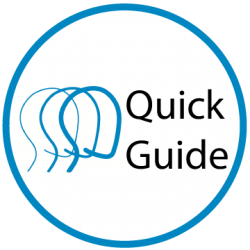Your Cart
Navigation Transition from School with a Brain Injury/Concussion

Brain injury presents a spectrum of disorder. Not every brain injury is the same, and students with a brain injury may struggle to achieve optimal school and work outcomes without appropriate support. As students with brain injury prepare to transition out of school, there are services to help. Transition plans for all students with disabilities, ages 15-21, must be built into the student’s Individualized Education Plan (IEP).
What are transition services?
Transition services should address how to move a student successfully from school to postsecondary education and training, employment, independent living, and community participation; it can begin as early as 14. Goals and activities are based on the student’s needs, preferences, abilities and interests, and include needed supports in:
- Instruction
- Related services
- Community experiences
- Development of employment and other post-school adult living objectives
- Acquisition of daily living skills as appropriate
- Functional vocational evaluation
The Center on Brain Injury Research and Training (www.cbirt.org) looked at these recommended practices for planning, organizing, and evaluating transition education services and programs, and created a Transition Toolkit for Students with a Traumatic Brain Injury. The toolkit assists families and transition staff to recognize the unique challenges a student with a brain injury may have and how to address and work through the transition process with these students.
My child received Special Education services in public school; what happens if they go to college?
Colleges are not bound by the Individuals with Education Act, which requires an Individual Education Plan (IEP); they are required to provide 504 plans. Many colleges do have a Disability Specialist, who can assist with supports or accommodations available to students in higher education. Colleges are required to provide 504 plans.
My child will not go to college; what options do they have?
Contact the Department for Aging and Rehabilitative (DARS). DARS offers vocational rehabilitation services for people with a disability as they prepare to find or keep a job. Services can include career exploration, counseling, vocational evaluation and assessments, job development and placement, post-secondary education, on the job training and supported employment.
To learn more about brain injury and the unique supports many students need, view our Educator's Guide.
Resources:
Transitioning from High School to Post-Secondary Education. Explains why transition from the IEP to a 504 plan for seniors is important!
Transition Planning: Setting Lifelong Goals. Provides two checklists and good advice to help your child make a successful transition from school to employment or further education.
Parents Guide to Transition. Give information and tools to increase your knowledge and help you prepare for your child’s transition from K-12 education to post secondary education and life as a young adult.
More Resources:
Preparing for Life after High School.
Transition Services - The Disability Law Center of Virginia
Webinar Navigating Transition with a Brain Injury
Printable version of Transition from School Quick Guide
